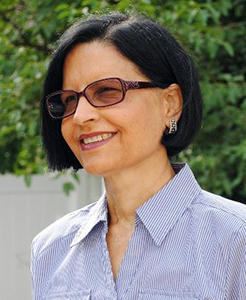
Rehana Sajjad, MD
A4M valued member Rehana Sajjad, MD, shares great insight from her professional experience in this Physician of the Month feature.
For 40 years, Dr. Rehana Sajjad has actively practiced in a wide spectrum of ob-gyn medicine cases, including outpatient and inpatient, with over 20 years of experience in the United States alone. Dr. Sajjad practices a core philosophy of enabling her patients to achieve highest levels of health and wellness. She utilizes the most up-to-date resources for evidence-based healthcare and, enhanced by her excellent communication skills, strives to keep her patients informed and involved in every aspect of their health care. She is often described by patients as being “motherly”. Dr. Sajjad is the Founder & Chief Provider at Women’s Health Care and a strong proponent of technological advancements.
Q: Before joining A4M, what was your medical background?
I am a board certified OB/GYN.
Q: What anti-aging techniques have you incorporated into your practice? And how did you so?
I have started bio-identical hormone replacement therapy, leaky gut treatment, cardiovascular health, thyroid health, menopausal health, diabetes, weight loss, prevention of breast cancer recurrence, memory loss, longevity, and infertility. Even counseling to the prenatal patients has changed as well. I tell them to eat organic, improve their Vitamin D, C, B levels.
Q: What are the benefits of practicing anti-aging medicine (as a professional, and for your practice)?
Anti-aging medicine gets to the root of the cause of the problem rather than treating the symptoms.
Q: What are the changes you see in your patients?
Patients are very happy and don’t even want to go back to their primary doctors and their traditional medicine philosophies.
Q: Why would you recommend Anti-Aging Medicine to your peers?
This is the real medicine. If all the doctors start practicing this, it will give awareness to the general population about how to eat and live healthy and prevent heart diseases, cancers, auto immune diseases, obesity, diabetes, hypertension, depression, schizophrenia, and Alzheimer’s, just to name a few.
Q: Where do you see the future of medicine 20 years from now?
My feeling is that 20 years from now, the country will have as many Anti Aging docs as we have conventional doctors now. The public will seek natural remedies and diseases will be curable with quality of life.
Open to all A4M Members: If you would like to be featured as A4M’s Physician of Month, please write us at [email protected].
